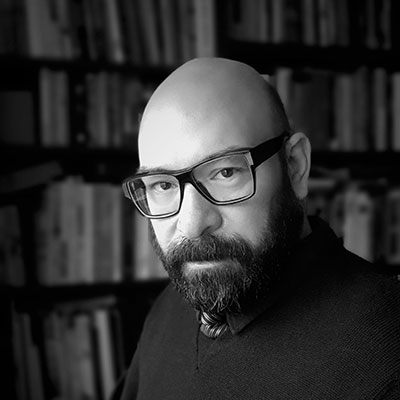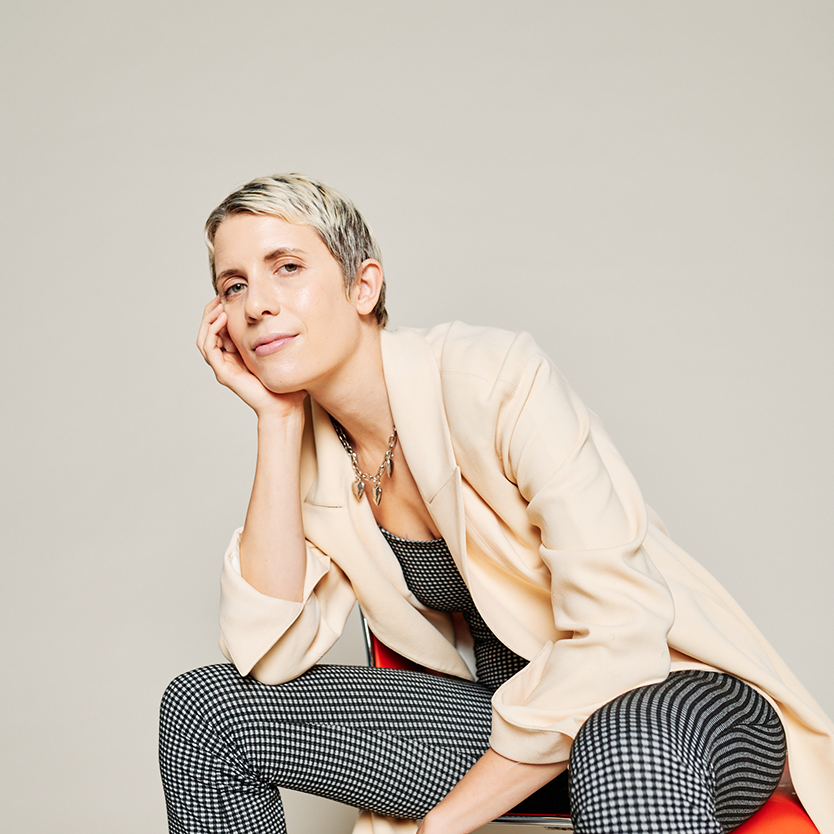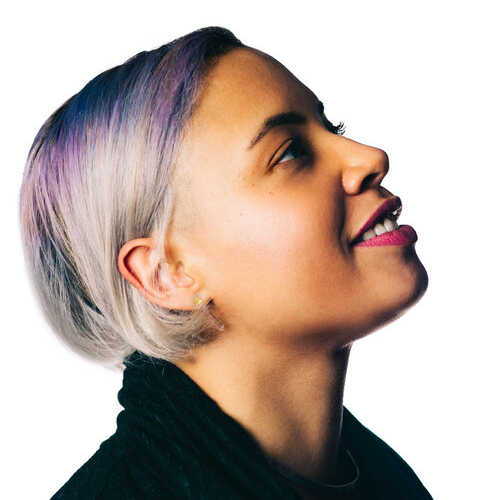Overview
What does it mean to make art (music, poetry, painting, design) in a world in which human creativity is being mined by generative artificial intelligence?
How can A.I. expand our creative horizons? How are artists experimenting with artificial intelligence today? Can art help us define what it truly means to be human? How might research and creative practice at the University of Michigan help answer these questions and more? Join us on March 5, 2024 to add your voice to the discussion
The University of Michigan Arts Initiative, the Michigan Institute for Data and AI in Society (MIDAS), Arts Research Incubation and Acceleration (ARIA), and the Michigan Center for Applied and Interdisciplinary Mathematics (MCAIM) jointly offer this symposium, bringing together writers, poets, visual artists and designers, and other creatives alongside scientists, engineers, humanists, philosophers, and other thinkers to investigate the process and products of the collaboration of AI and human artists, to showcase ongoing arts research efforts at the University of Michigan, and to explore research partnerships and other collaborative opportunities going forward.
U-M faculty members who are working or planning to work on projects / ideas related to AI for creative arts are also cordially invited to join our research discussion session (lunch and right after). We will facilitate the exchange of ideas, collaboration, and connecting projects with funding sources.
Speakers and Program
The speakers will showcase artwork created with AI collaboration and discuss the process with which such works were created, highlighting the quality and originality that can be achieved with AI.

9:10 AM–9:40 AM
Matias del Campo, Associate Professor of Architecture, A Alfred Taubman College of Architecture and Urban Planning

9:40 AM–10:10 AM
Claire L. Evans, Musician

10:10 AM–10:40 AM
Lillian-Yvonne Bertram, Writer
Panelists:
- Lillian-Yvonne Bertram, Writer
- Matias del Campo, Associate Professor of Architecture, A Alfred Taubman College of Architecture and Urban Planning
- Claire L. Evans, Musician
- Charles Garrett, Professor of Music, Musicology, School of Music, Theatre, and Dance
- Tung-Hui Hu, Associate Professor of English Language and Literature, College of Literature, Science, and the Arts
Moderator: Mark Clague, Interim Executive Director of the University of Michigan Arts Initiative.
The Arts Initiative, Arts Research: Incubation & Acceleration (ARIA), and other U-M organizations will give presentations on their funding programs. U-M faculty members can sign up (on the registration form) to give 3-minute pitches about their ongoing research or ideas under the theme of AI and creative arts to seek feedback. The group discussion will focus on collaboration building and resource connections.
Moderator: Jing Liu, MIDAS Executive Director.
Attendees will be able to join a breakout session for an introductory demonstration on using AI tools for art on a specific theme. Note: attendees must provide their own laptop.
Breakout session #1: AI for Music (Ballroom)
*NOTE: Attendees must also bring headphones for this session
3:00–3:50 PM: “Making Music with A.I.: Basic Concepts and Precedents”
Garrett Schumann, Composer, Lecturer in Music, School of Music, Theatre, and Dance
4:00–4:50 PM: “Making Music with A.I.: An Introduction to Tools and Platforms”
Claire L. Evans, Musician
10:10 AM–10:40 AM
Lillian-Yvonne Bertram, Writer
Breakout session #2: The Basics of AI (Vandenberg Room)
3:00–3:50 PM: “What is a Neural Network? (The Very Basics)
Molly Jones, PhD Student, Performing Arts Technology, School of Music, Theatre, and Dance
Breakout session #3 (Hussey Room)
3:00–3:50 PM: “AI Potpourri”
Matias del Campo, Associate Professor of Architecture, A Alfred Taubman College of Architecture and Urban Planning
Speaker Biographies

Lillian-Yvonne Bertram
Lillian-Yvonne Bertram’s most recent book of poetry is Negative Money (Soft Skull Press, 2023), which was a finalist for the New England Book Award. Their previous book, Travesty Generator (Noemi Press, 2019), won the 2018 Noemi Press Poetry Prize and the Poetry Society of America’s 2020 Anna Rabinowitz prize for interdisciplinary work, was longlisted for the 2020 National Book Award for Poetry, and was a finalist for the National Poetry Series. Their other books include Personal Science (Tupelo Press, 2017); a slice from the cake made of air (Red Hen Press 2016); and But a Storm is Blowing From Paradise (Red Hen Press, 2012), chosen by Claudia Rankine as the winner of the 2010 Benjamin Saltman Award. Their new chapbook, written with AI, is called A Black Story May Contain Sensitive Content and won the 2023 Diagram/New Michigan chapbook contest. Bertram’s other publications include the chapbook cutthroat glamours (Phantom Books, 2012), winner of the Phantom Books chapbook award; the artist book Grand Dessein (commissioned by Container Press), a mixed media artifact that meditates on the work and writing of the artist Paul Klee and was acquired by the Special Collections library at St. Lawrence University; and Tierra Fisurada, a Spanish poetry chapbook published in Argentina (Editoriales del Duende, 2002). They collaborated with the artist Laylah Ali for the exhibition booklet of her 2017 art show The Acephalous Series.
Bertram has published poetry, prose, and essays in numerous journals. Their honors include a 2017 Harvard University Woodberry Poetry Room Creative Grant, a 2014 National Endowment for the Arts Poetry Fellowship, finalist nomination for the 2013 Hurston/Wright Legacy Award, a Vermont Studio Center Fellowship, and fellowships to the Bread Loaf Writers Conference, Cave Canem, and others. Their essay “To find kisses pressed in books: 100 Years of Gwendolyn Brooks” was featured on the Poetry Foundation’s website in the fall of 2016, where they have previously blogged for Harriet, the Poetry Foundation’s blog.
Bertram described their writing process to Mass Poetry: “I never know when what I am going to write will become a poem or something else. This can be a very fraught task. Sometimes what I am writing does not want to be a poem, but something else: a fragment of a larger text that I have yet to conceive or a collage. I think that like most writers, I am always scribbling down a thought in a notebook or on some scrap of paper or post-it note, whatever is handy. From time to time I take a moment, set out all these scraps of paper and notes before me and transcribe them into a document. Maybe a poem comes out of this, but maybe not. Sometimes lines or ideas suggest themselves for other poems that are already in progress but perhaps abandoned and using this method they are given a new life.”
Bertram holds a PhD in Literature & Creative Writing from the creative writing program at the University of Utah, among degrees from Carnegie Mellon University and the University of Illinois at Urbana-Champaign. They direct the MFA in creative writing program at the University of Maryland. They have previously taught at the University of Massachusetts-Boston, St. Lawrence University, Ithaca College, and Williams College, and directed the Chautauqua Institution Writers’ Festival.

Matias Del Campo
Dr. Matias del Campo is a registered architect, designer, and educator. He is an Associate Professor at Taubman College for Architecture and Urban Planning, University of Michigan, and director of the AR2IL – The Architecture and Artificial Intelligence Laboratory at UoM. He conducts research on advanced design methods in architecture, primarily through the application of Artificial Intelligence techniques in collaboration with the Computer Science department and Michigan Robotics – of which he is also an affiliated faculty member. Matias del Campo is the co-founder of the architecture practice SPAN. Their award-winning architectural designs are informed by advanced geometry, computational methodologies, and philosophical inquiry.

Claire L. Evans
Claire L. Evans is a writer and musician exploring ecology, technology, and culture.
She is the singer of the Grammy-nominated pop group YACHT, co-founder of VICE’s imprint for speculative fiction, Terraform, and co-editor, with Brian Merchant, of the accompanying anthology Terraform: Watch Worlds Burn (MCD Books, 2022). Her 2018 history of women in computing, Broad Band: The Untold Story of the Women Who Made the Internet, published by Penguin Random House, has been translated into six languages and was named one of the Top 10 Best Nonfiction Tech Books of All Time in 2023.
Her writing has appeared in MIT Technology Review, VICE, Rhizome.org, The Verge, Pioneer Works’ Broadcast, and The Guardian, among others. Her 2022 profile of the lost hacker Susy Thunder was nominated for an ASME Award; a feature film adaptation of the story is currently in development at Paramount Pictures.
She has given invited talks at the Hirshhorn Museum, Walker Art Center, TEDx, La Gaité Lyrique, Google I/O, The New Museum, XOXO Festival, MUTEK, Goethe Institut, Manchester International Festival, SXSW, Gray Area, Neural Information Processing Systems, the Association for Computational Linguistics, and the Decentralized Web Summit, among others. She is a 2024 MacDowell Fellow.
She lives in Los Angeles, where she is an advisor to students in the Media Design Practices program at Art Center College of Design.


